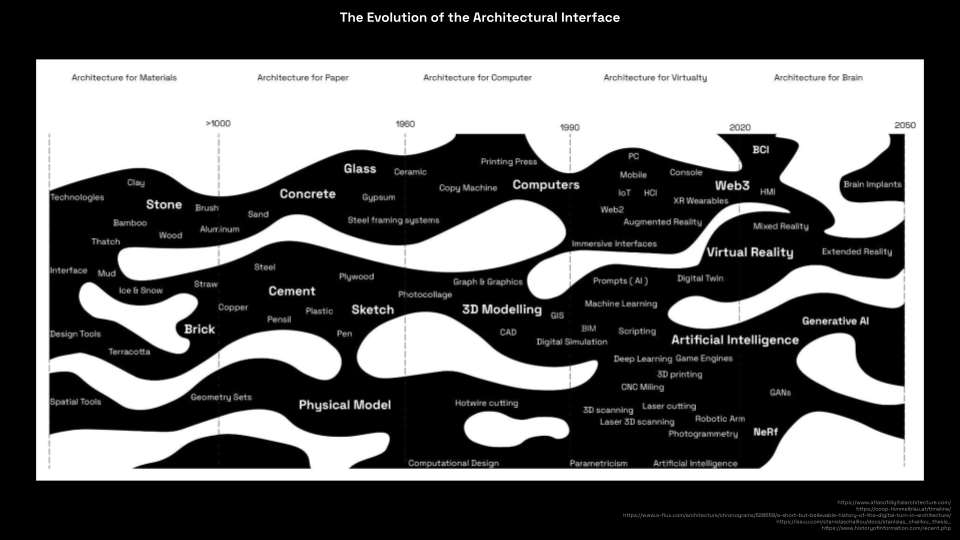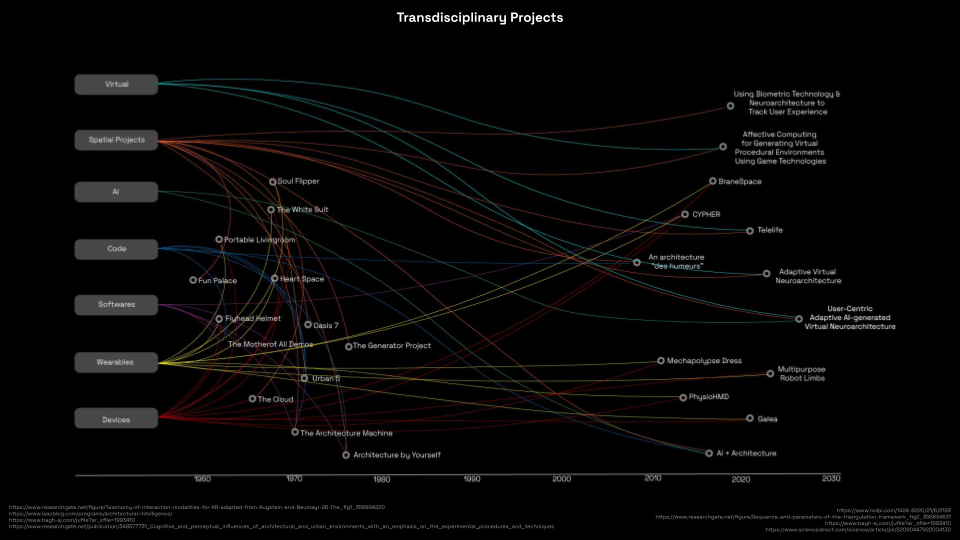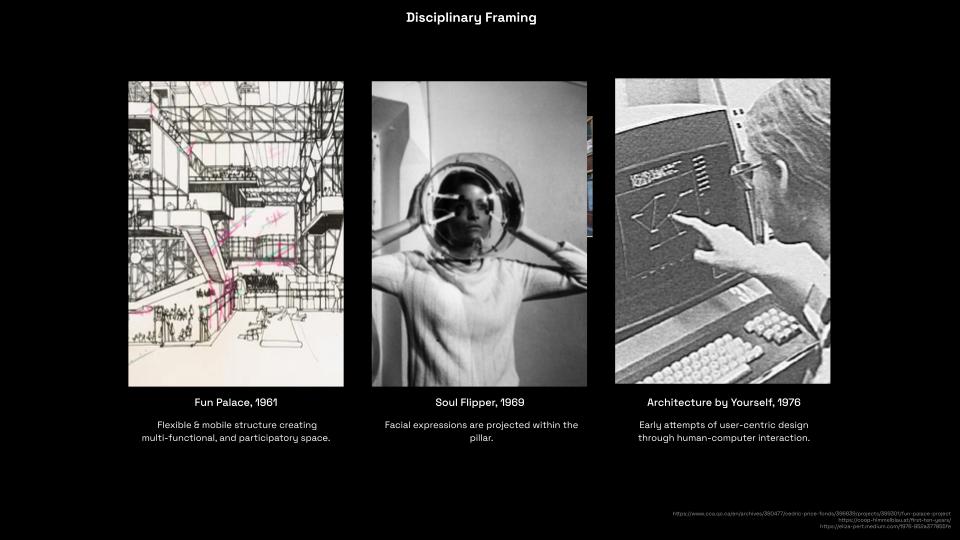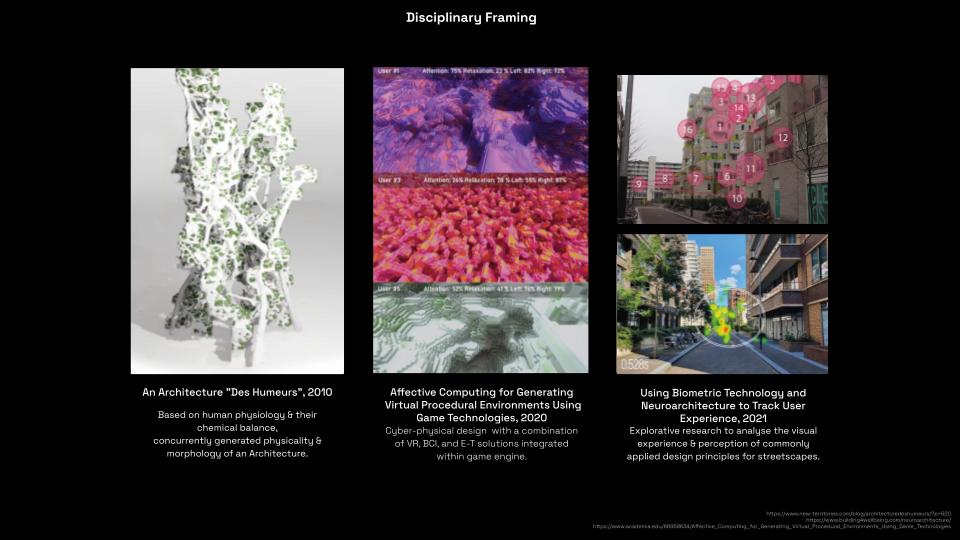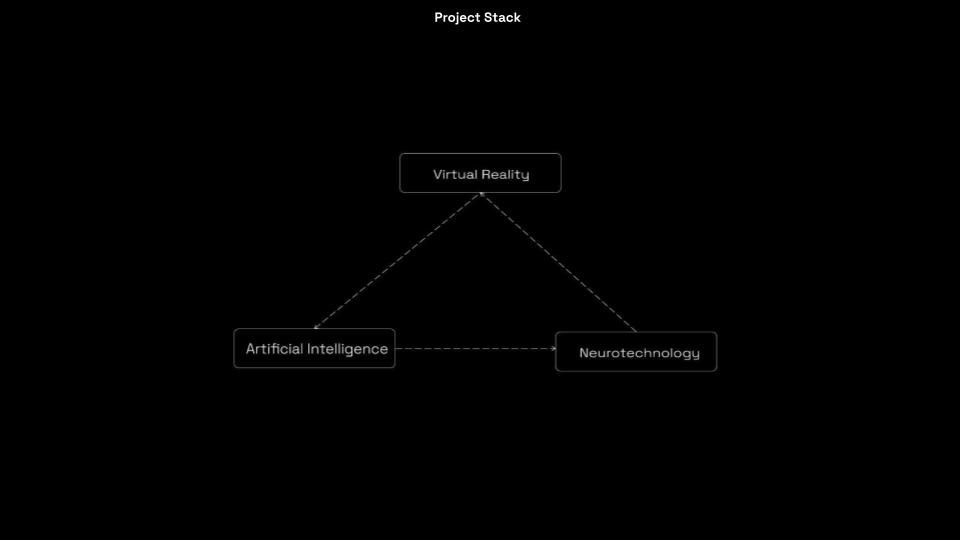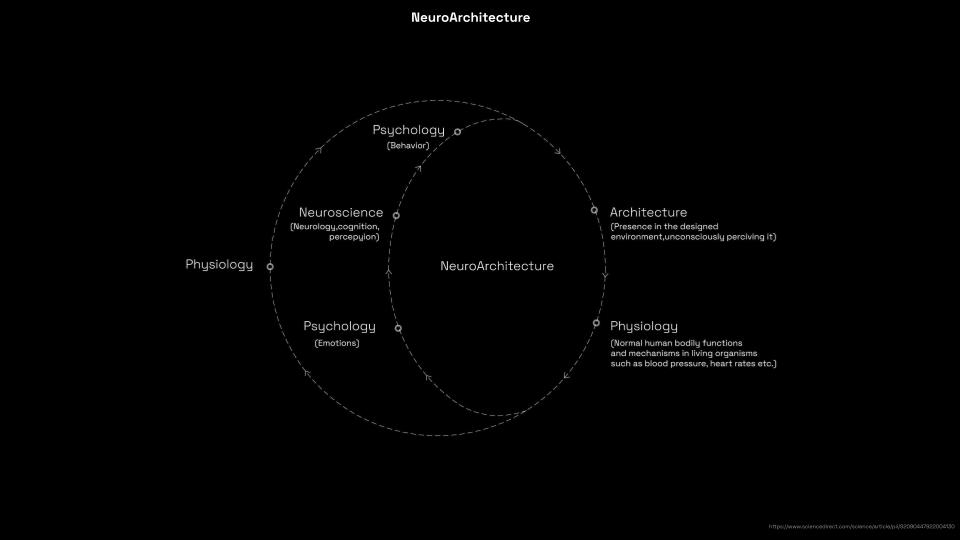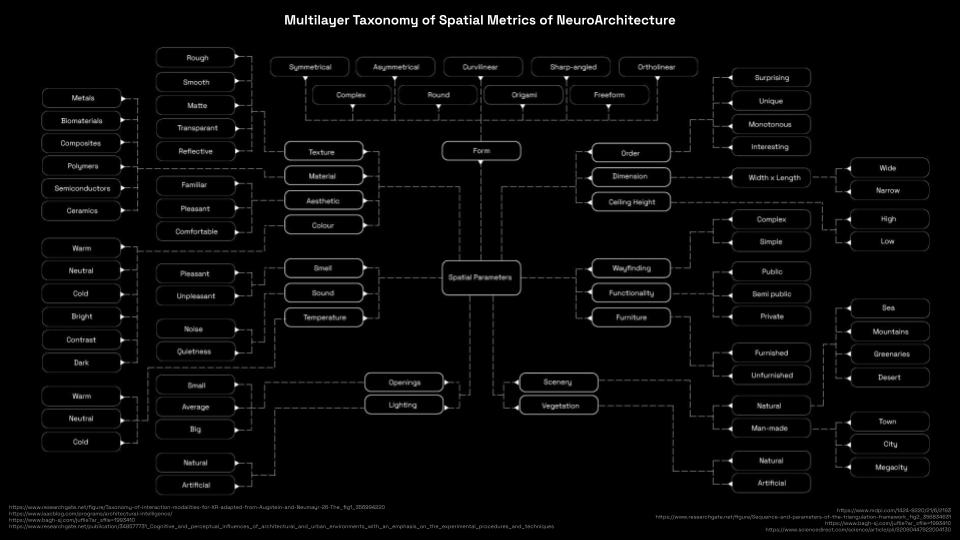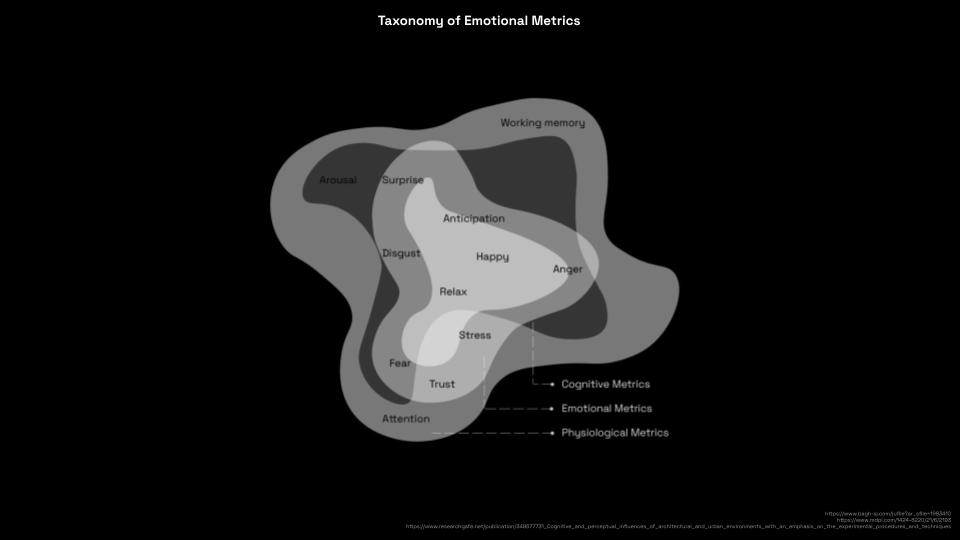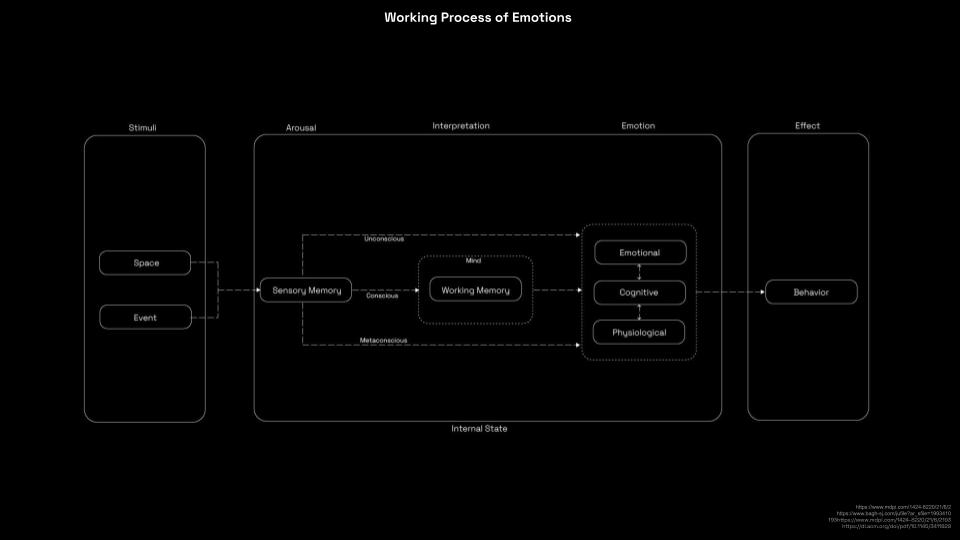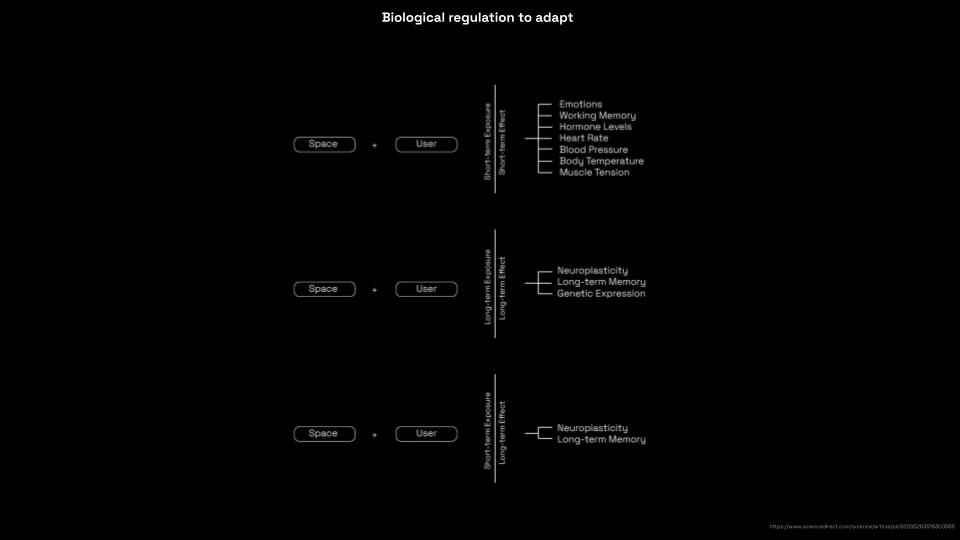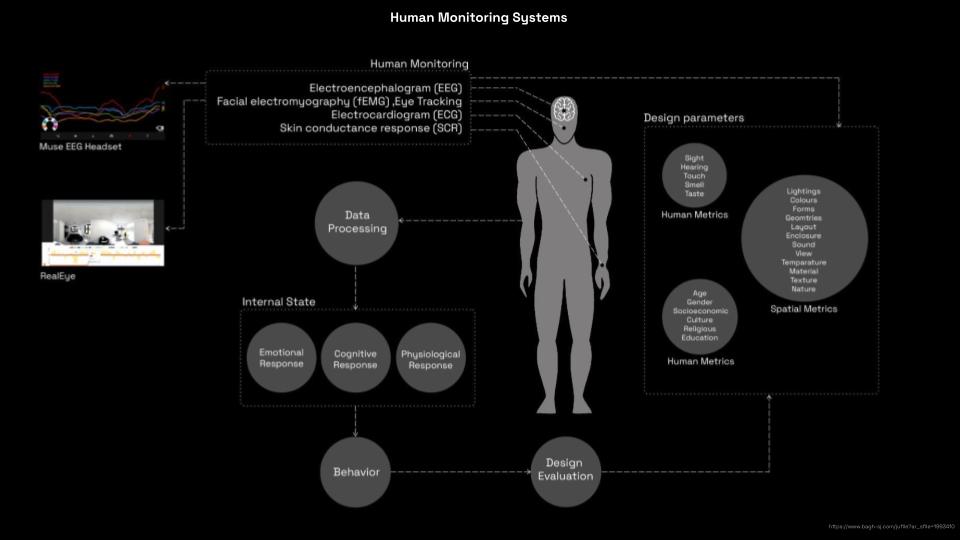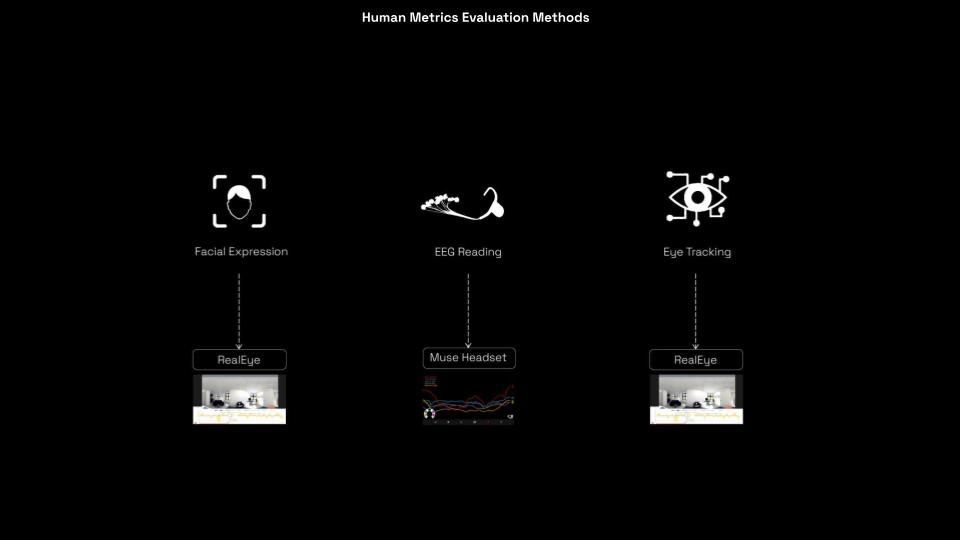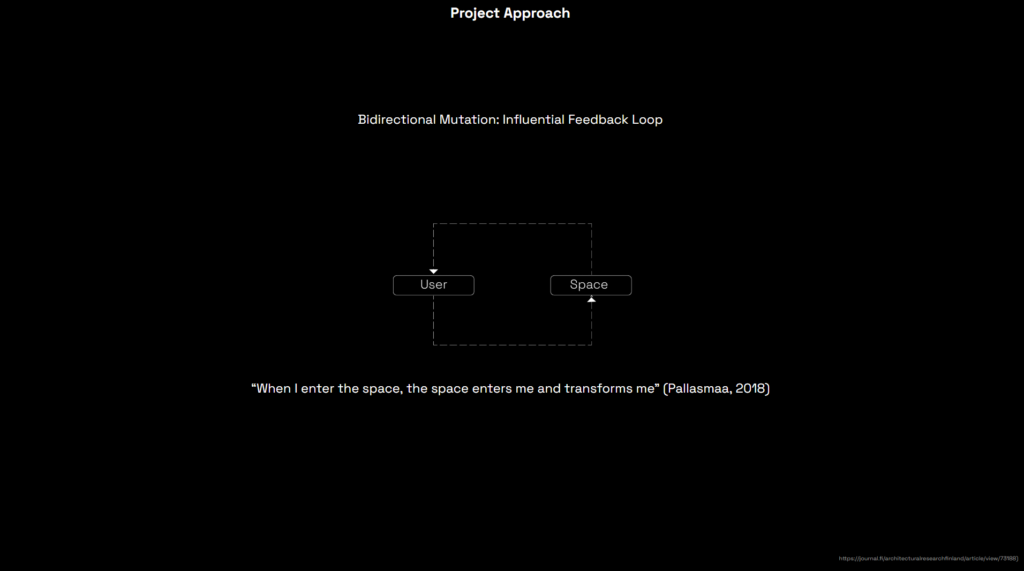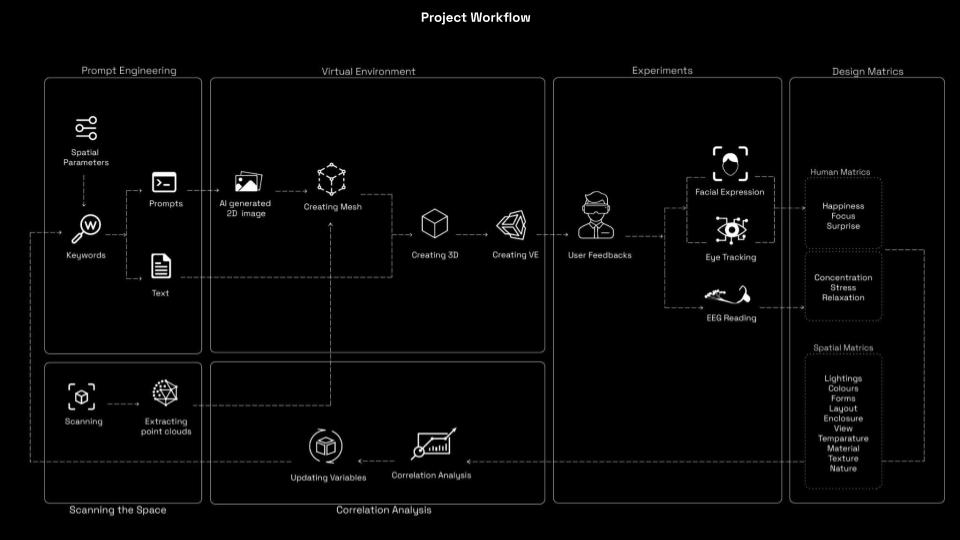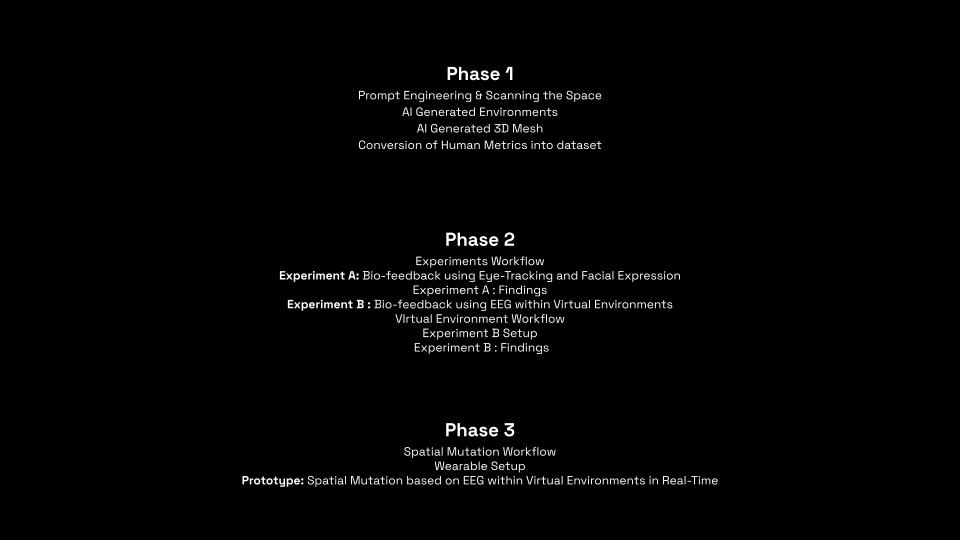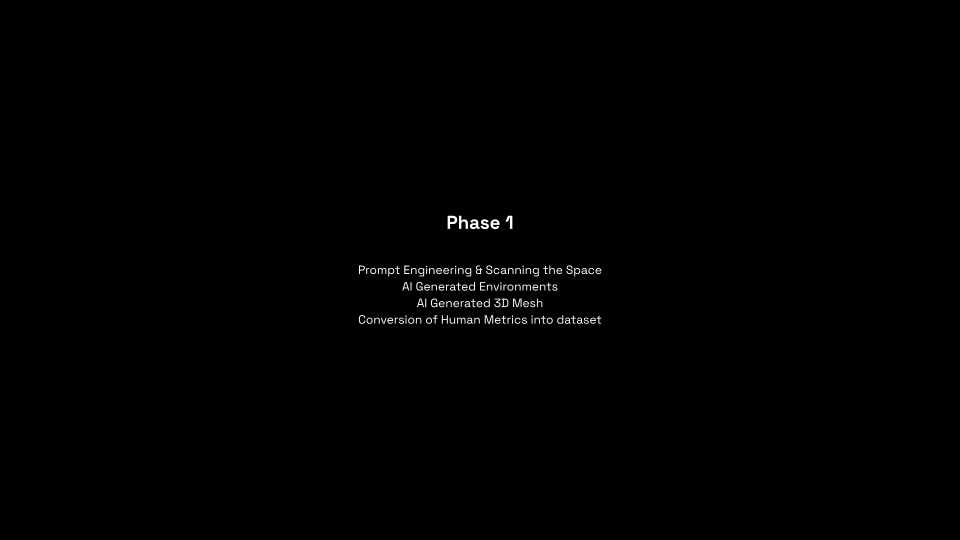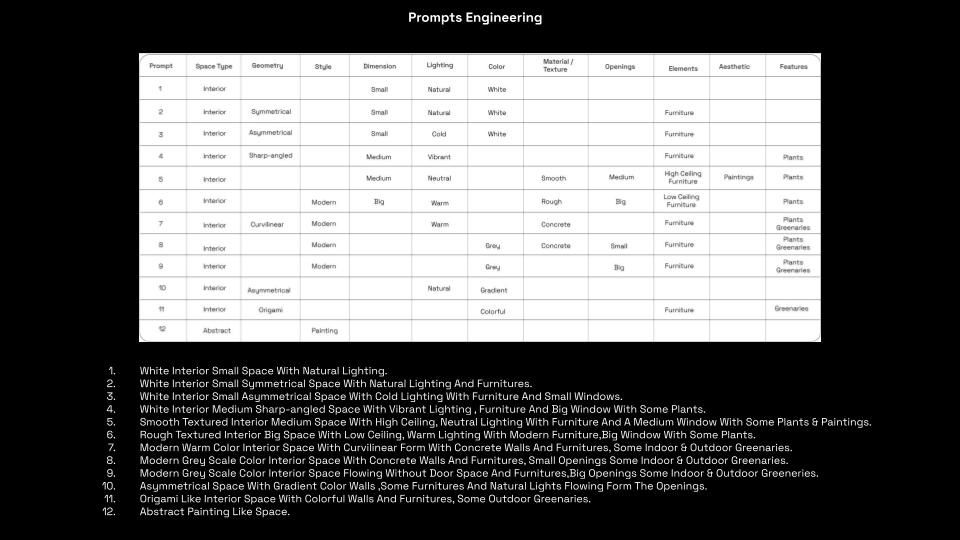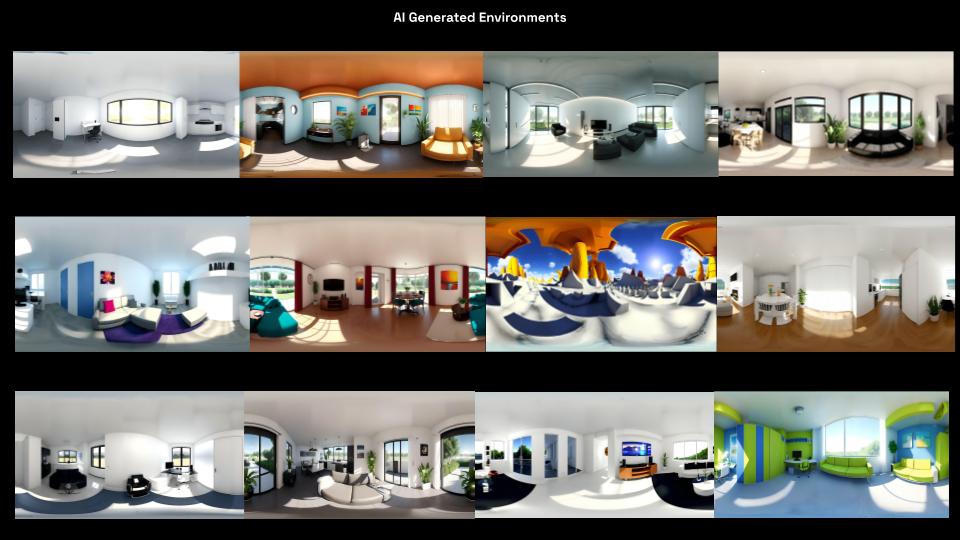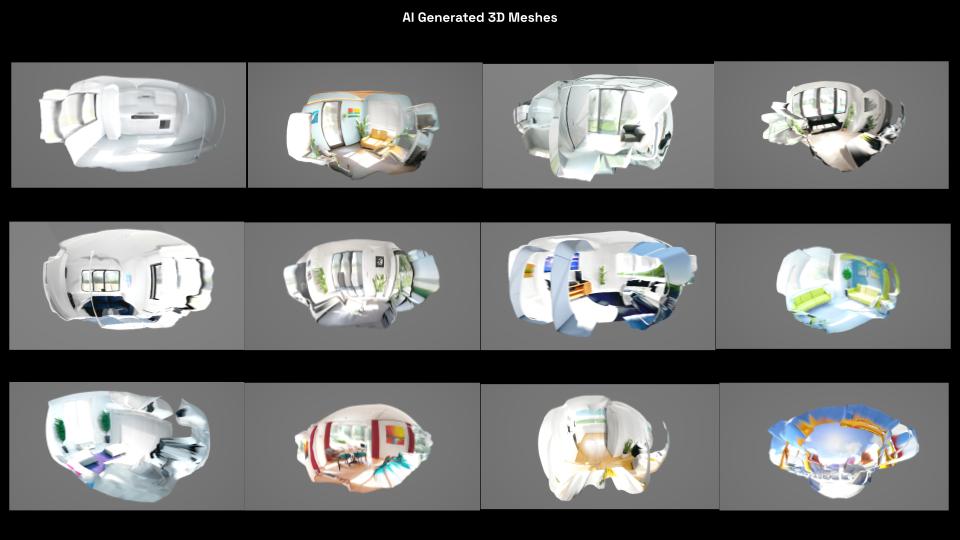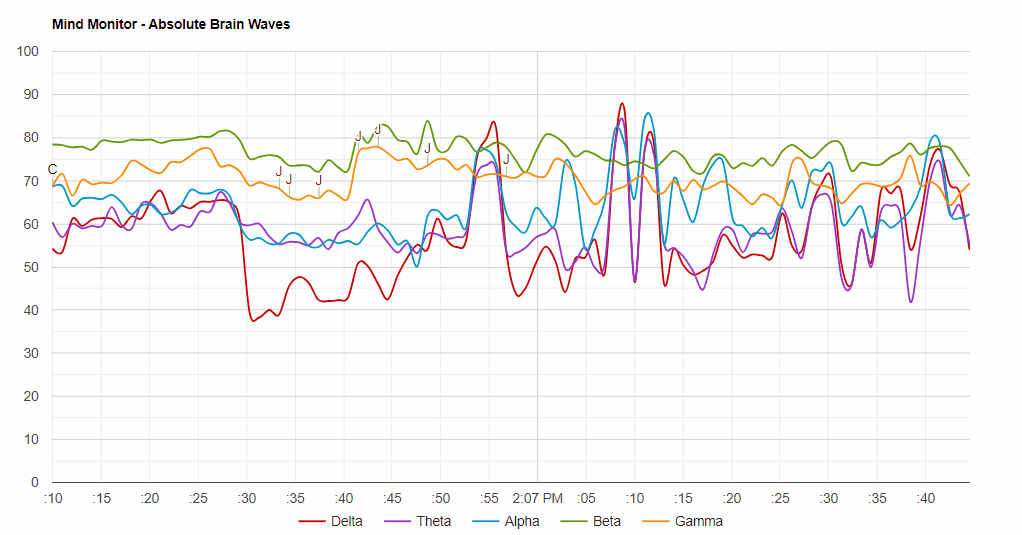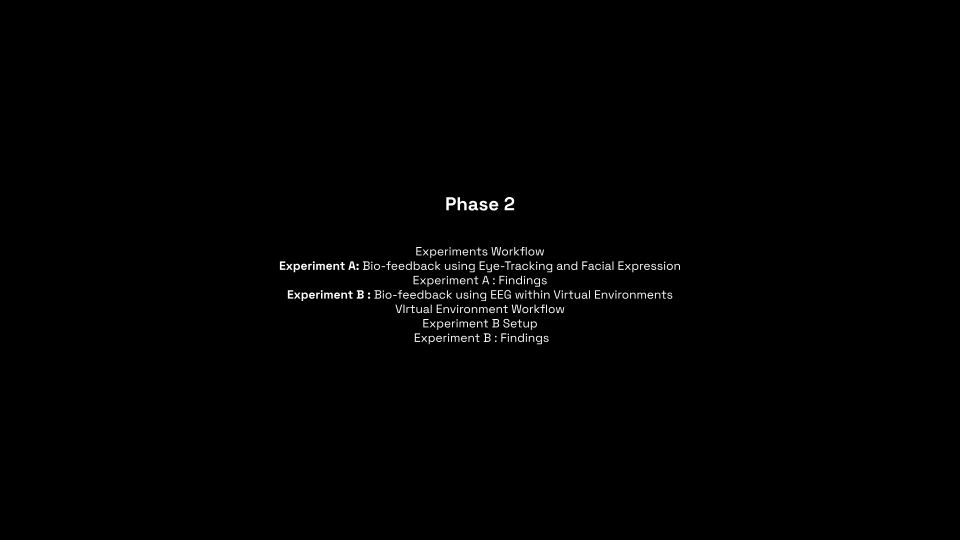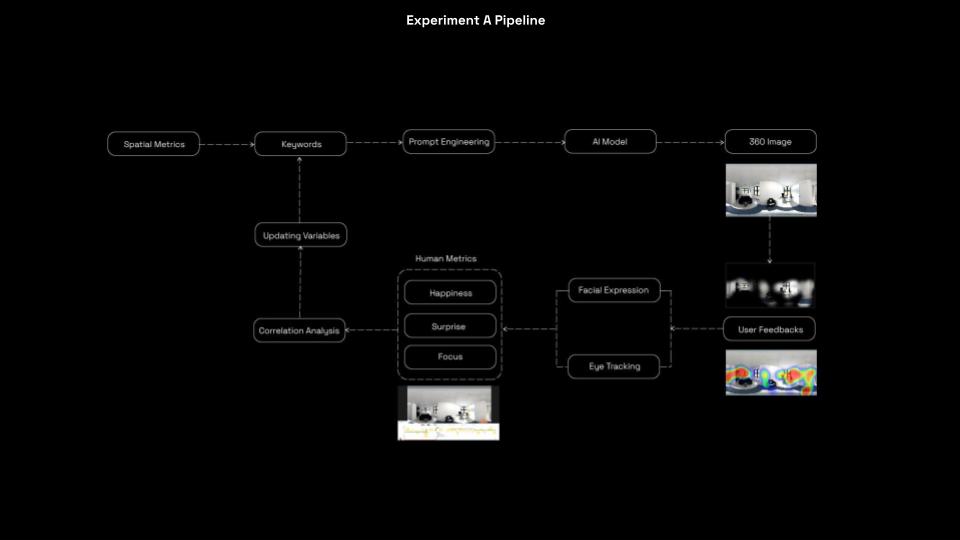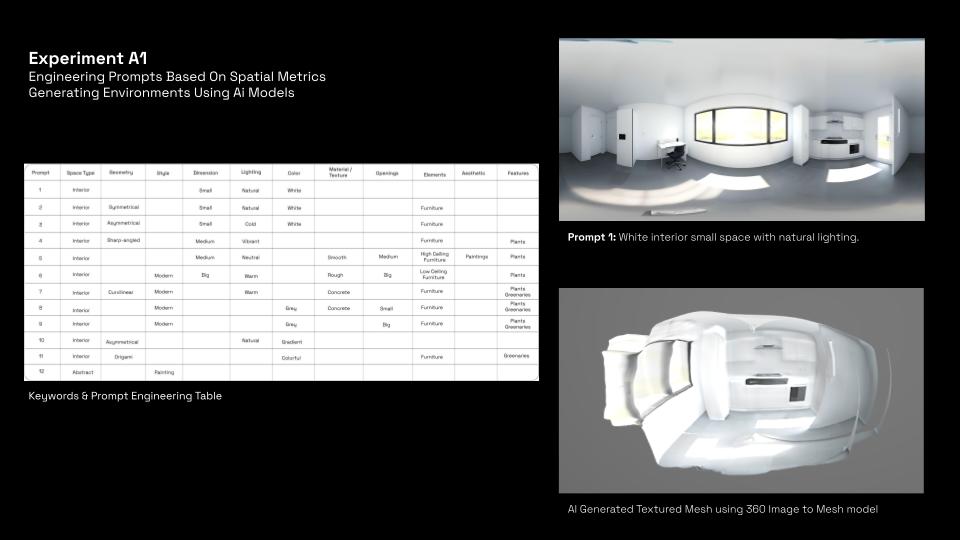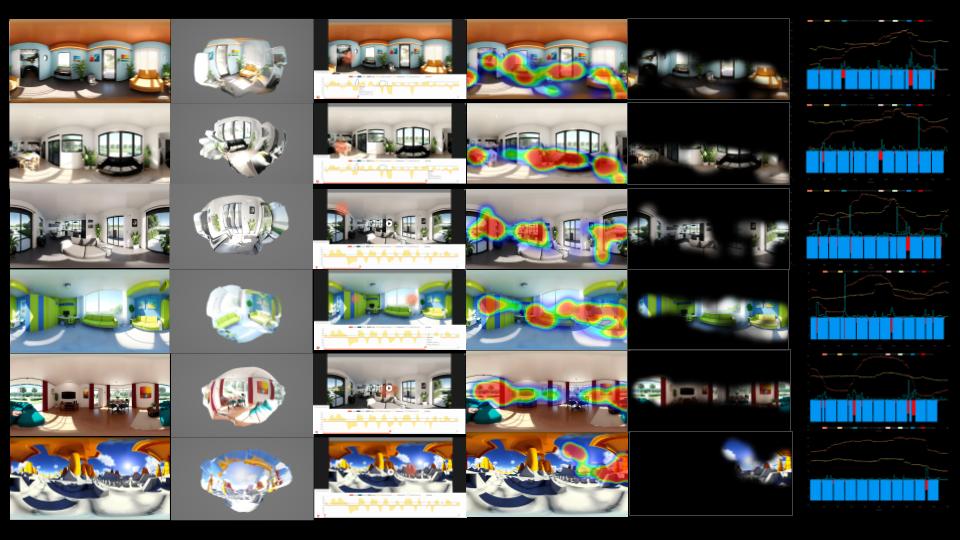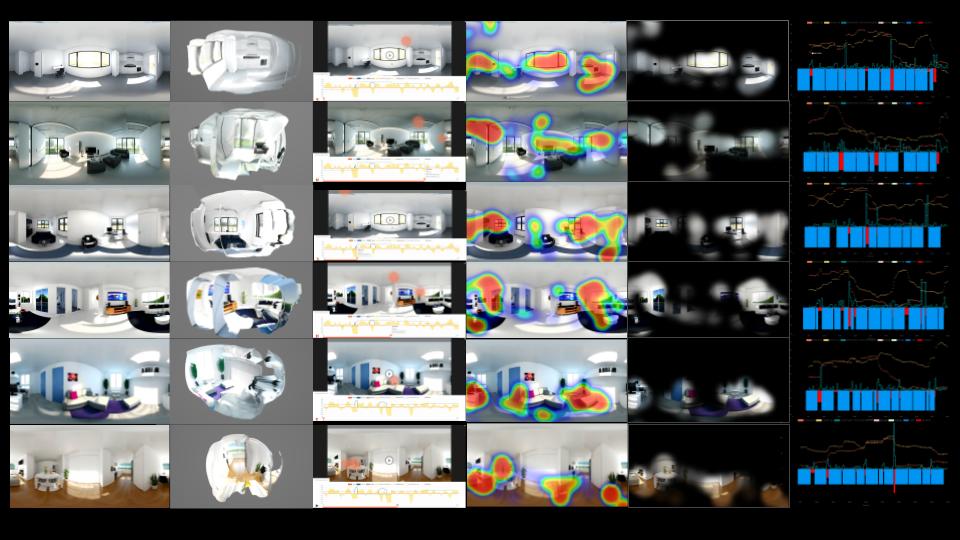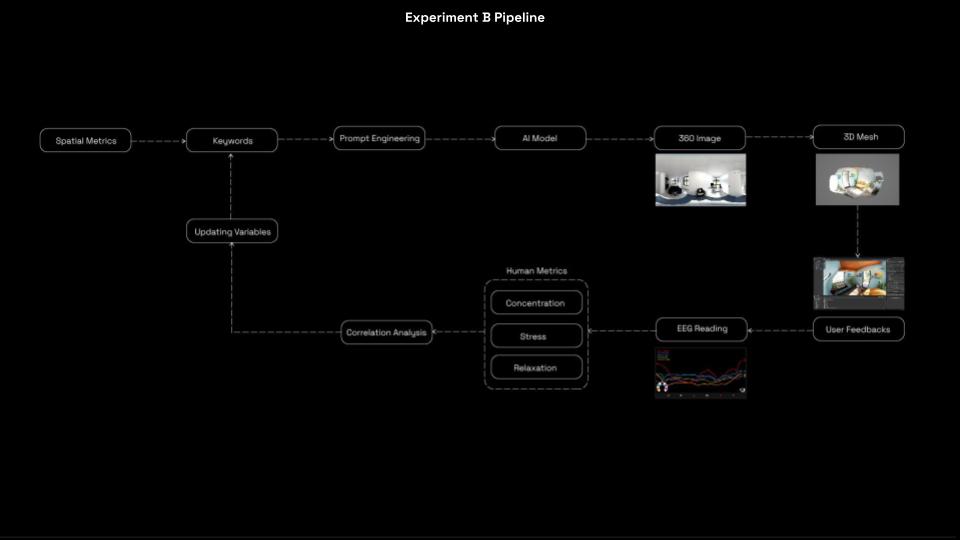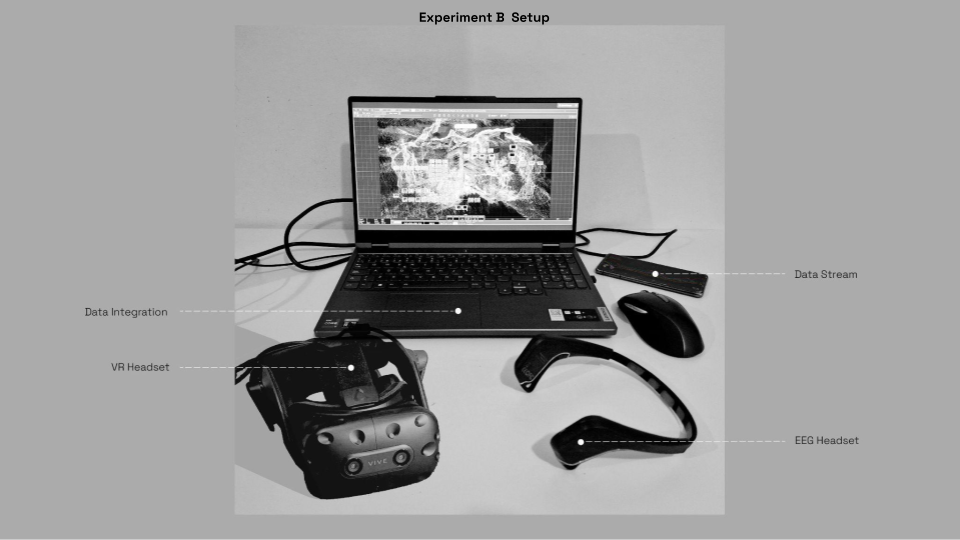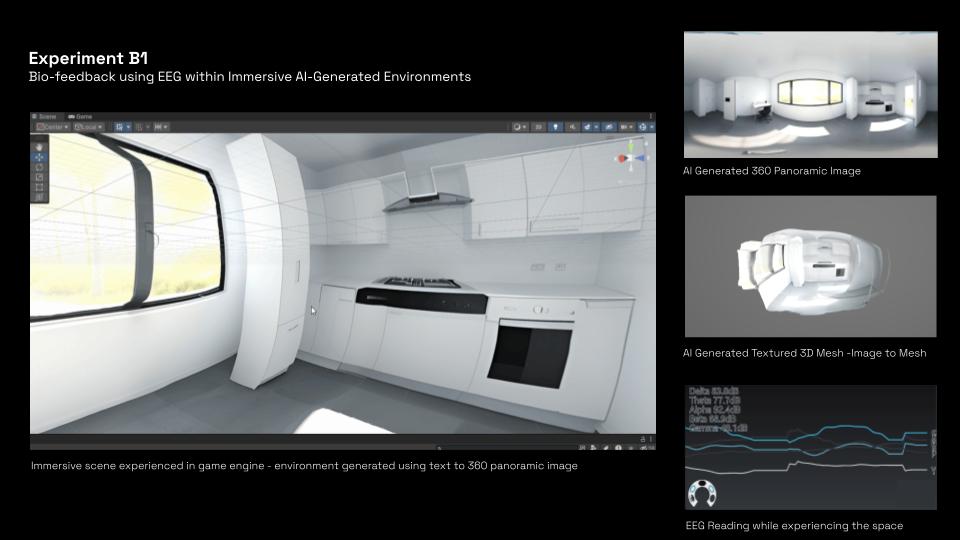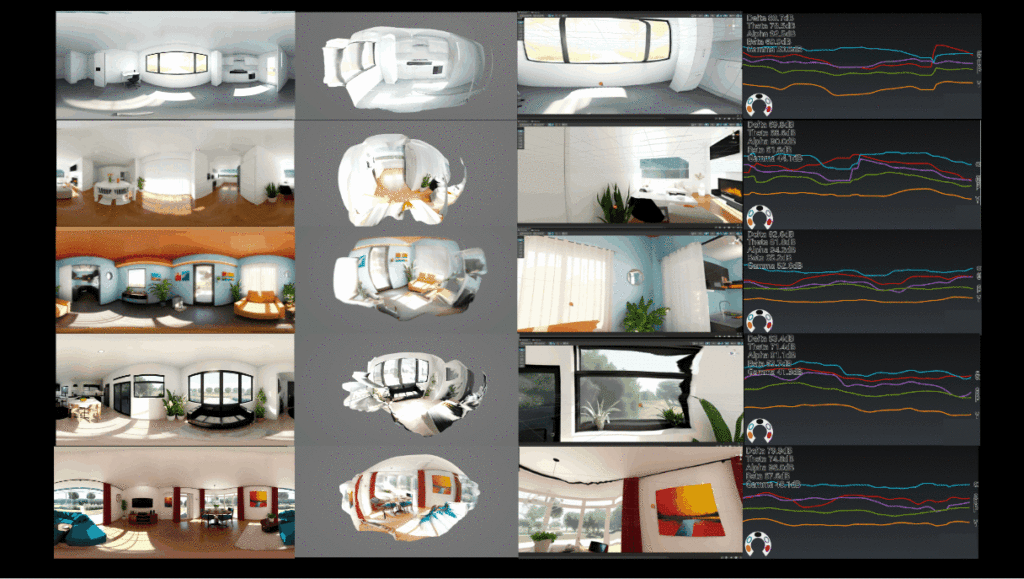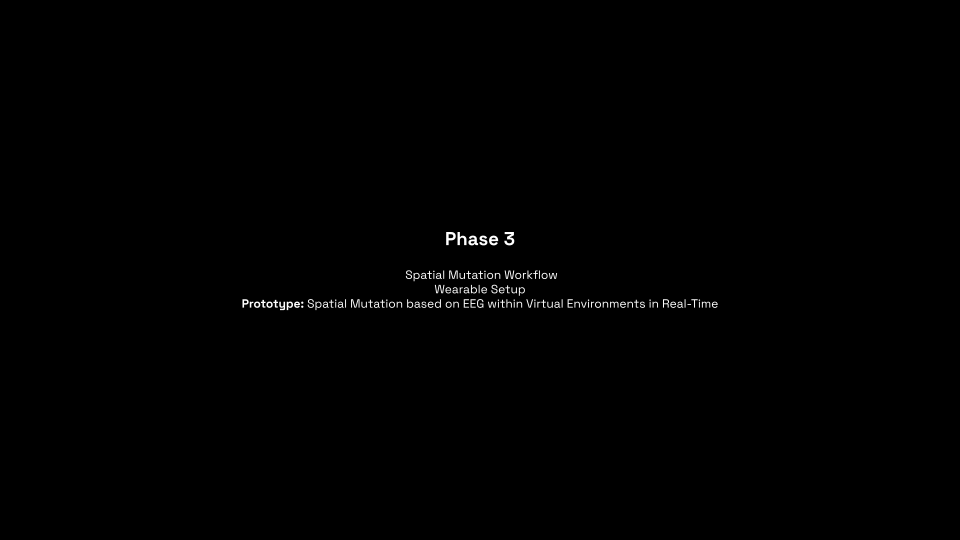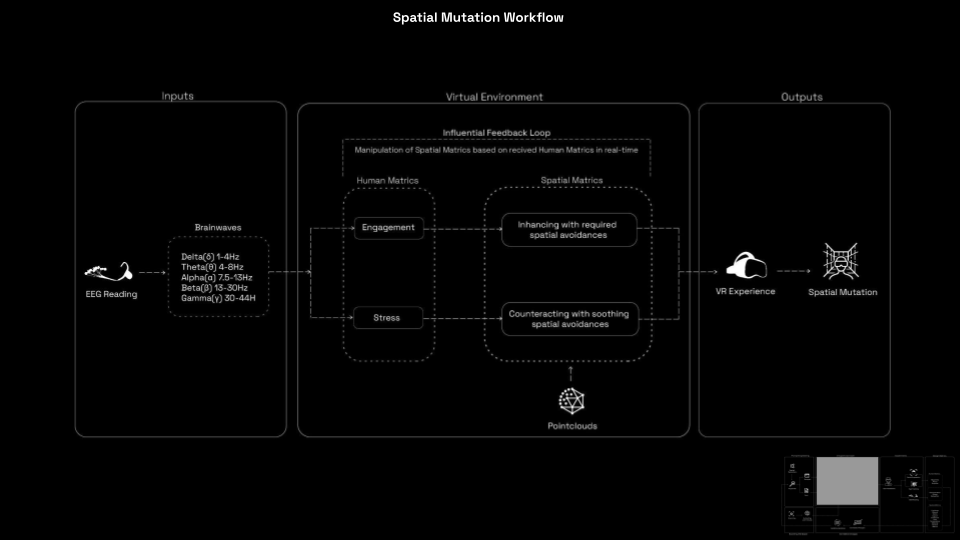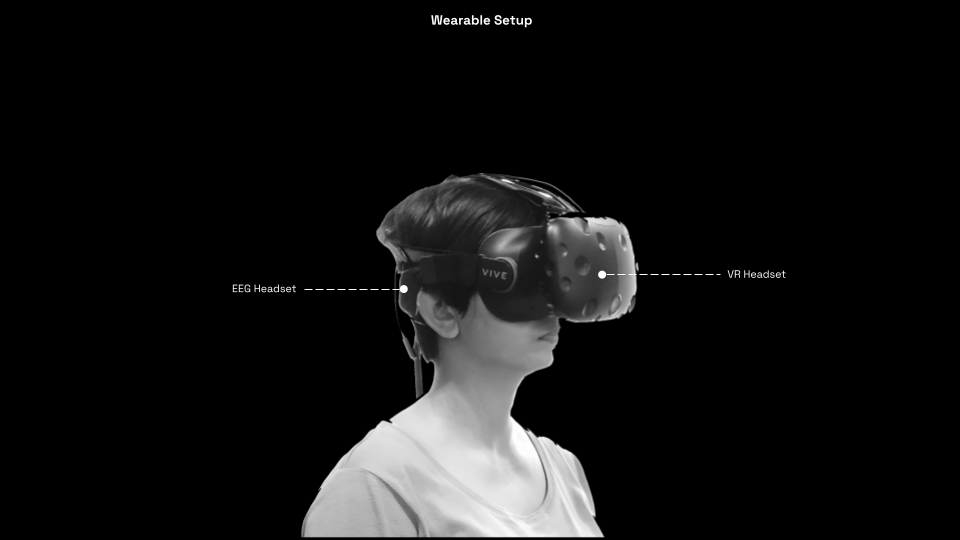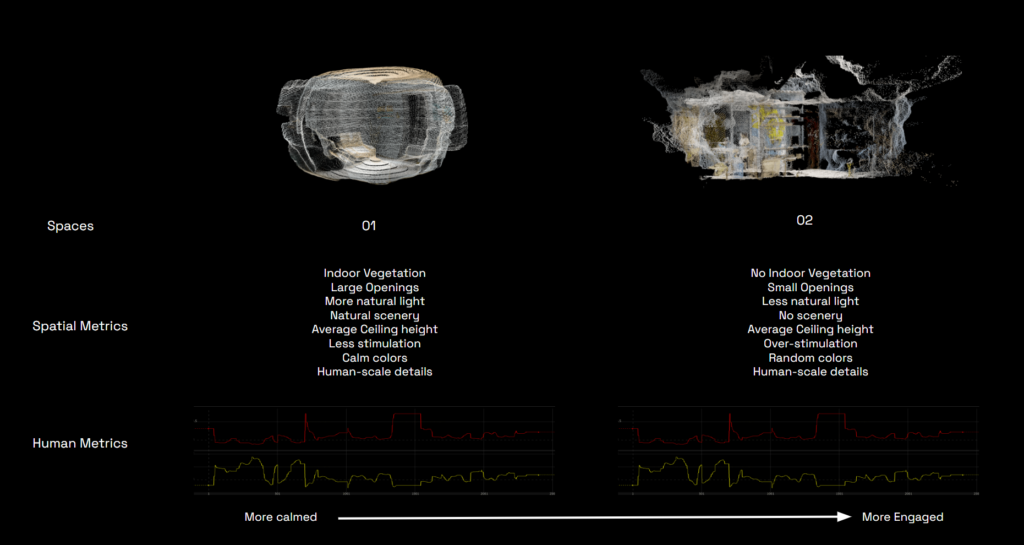Our surroundings have a significant impact on our thoughts and emotions and influence our overall well-being. This research project focuses on exploring the significant relationship between our mental states and surroundings, emphasizing the need to reimagine spaces as interactive, adaptable environments that prioritize mental well-being. Technological advancements such as virtual reality (VR), artificial intelligence (AI), and neurotechnology have played a crucial role in shaping the evolution of architecture and its interfaces over time.
This research seeks to understand how neurotechnology and VR technology can contribute to creating user-centric adaptive spatial experiences, where both the space and the user are in a constant mutation—a continuous feedback loop where the space itself becomes an active catalyst based on the user’s biometric data in real-time. The goal is to develop personalized virtual spaces that continuously adapt to users’ emotional and cognitive states in real-time by utilizing biometric data and responsive behaviors countering the user’s negative emotional, mental, or cognitive state at that moment to positively impact the user’s behaviour, performance and mental well-being.
The proposed solution is the development of Neuro-Immersive Space: User-Centric Adaptive AI-generated Virtual Neuroarchitecture (UCAAVN), which aims to create adaptive spatial experiences that dynamically adjust to users’ emotional and cognitive states in real-time, leveraging VR, AI, and neurotechnology. This project highlights the potential of UCAAVN to revolutionize the approach to mental health in an era dominated by virtual experiences, AI, and BCI, providing a new way to design healthier and more engaging environments.
